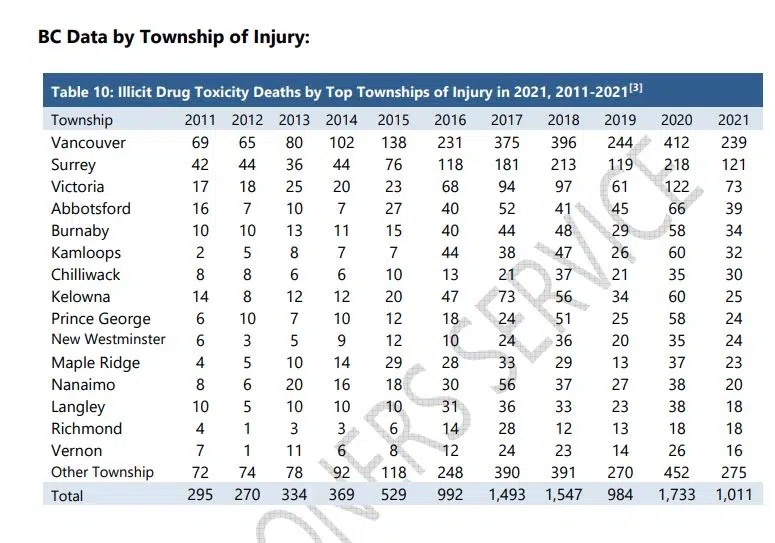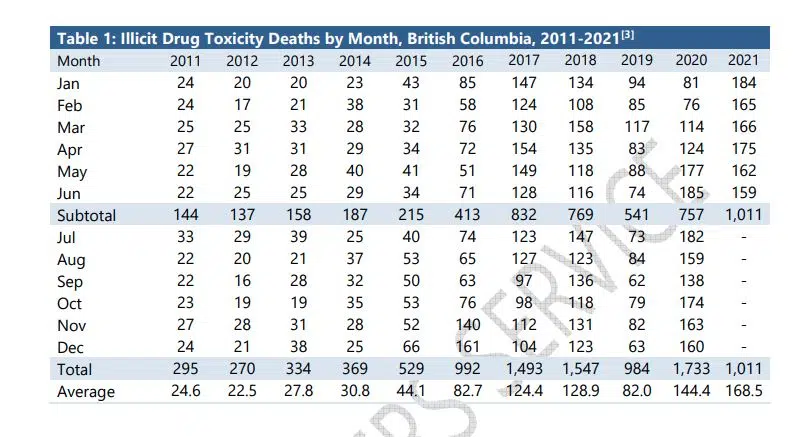
New data from the BC Coroners Service shows there were at least 1,011 people who died of a suspect drug overdose in the first six months of the year, the highest ever on record.
It comes as the service reported 159 more deaths in June, the ninth-straight month where at least 150 British Columbians died as a result of the toxic drug supply.
“Drug toxicity is now the leading cause of death in this province for those aged 19 to 39 with an average age of death of 44 years,” chief coroner Lisa Lapointe said. “In terms of total potential years of lives lost, across the entire population of B.C., drug toxicity comes second only to malignant cancers.”
The service said fentanyl was detected in 85 per cent of drug toxicity deaths in the first six months of 2021. Cocaine and methamphetamine were also present in a significant number of deaths.
“A majority of those dying are men and most of those who died were alone at the time,” Lapointe added.
In Kamloops, there were another six overdose deaths reported in June, taking the total on the year to 32 people. In 2020, a record 60 people in Kamloops lost their lives to an overdose.
“Today is International Overdose Awareness Day; a day in which we remember and mourn the family members, friends and neighbours we’ve lost to drug toxicity,” Lapointe said.
“To the thousands of B.C. families grieving the loss of a beloved family member, I extend my heartfelt condolences and my hope that the stories you’ve shared will continue to influence positive change. Those who died mattered, and their loss is felt deeply. And we must continue to urge those in positions of influence across our province and the country to move to urgently implement measures to prevent more unnecessary suffering and death.”
During a press conference Tuesday morning, Lapointe said it is “sad” that there has been a disproportionate response to the opioid crisis when compared to the COVID-19 pandemic in B.C.
“We haven’t seen a commensurate response to the crisis. We don’t have a standard of care for people experiencing substance use,” she said. “The data released today highlights the immensity of this public health emergency and the need for a wide-scale response. This includes removing barriers to safe supply, ensuring timely access to evidence-based affordable treatment and providing those experiencing problematic substance use with compassionate and viable options to reduce risks and save lives.”
A similar sentiment was shared by Leslie McBain, the co-founder of Moms Stop the Harm.
“We all know the definition of wrong thinking. Doing the same thing over and over and expecting a different outcome. This is different. We are doing essential nothing and expecting things to improve,” she said.
“How many people must die before all levels of government have the courage and the sense of immediacy and the lack of stigma to say enough is enough. And to widely implement the measures [like a safe regulated supply of drugs] that they know, though evidence, will keep people alive.”
The overdose crisis was declared a public health emergency in British Columbia five years ago, in April of 2016, and 7,760 people have died of an overdose since then.


















